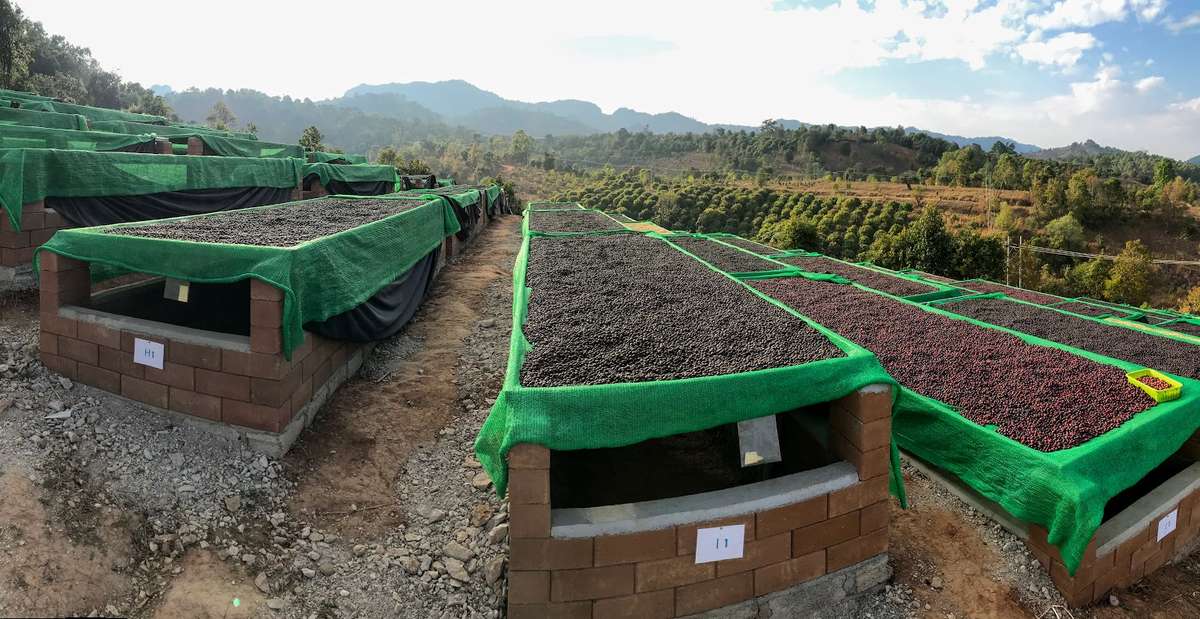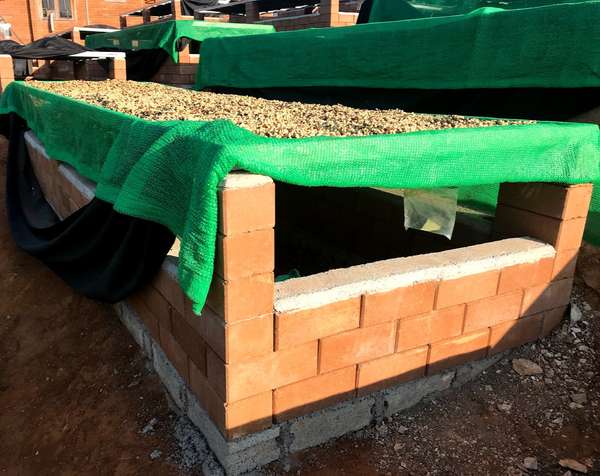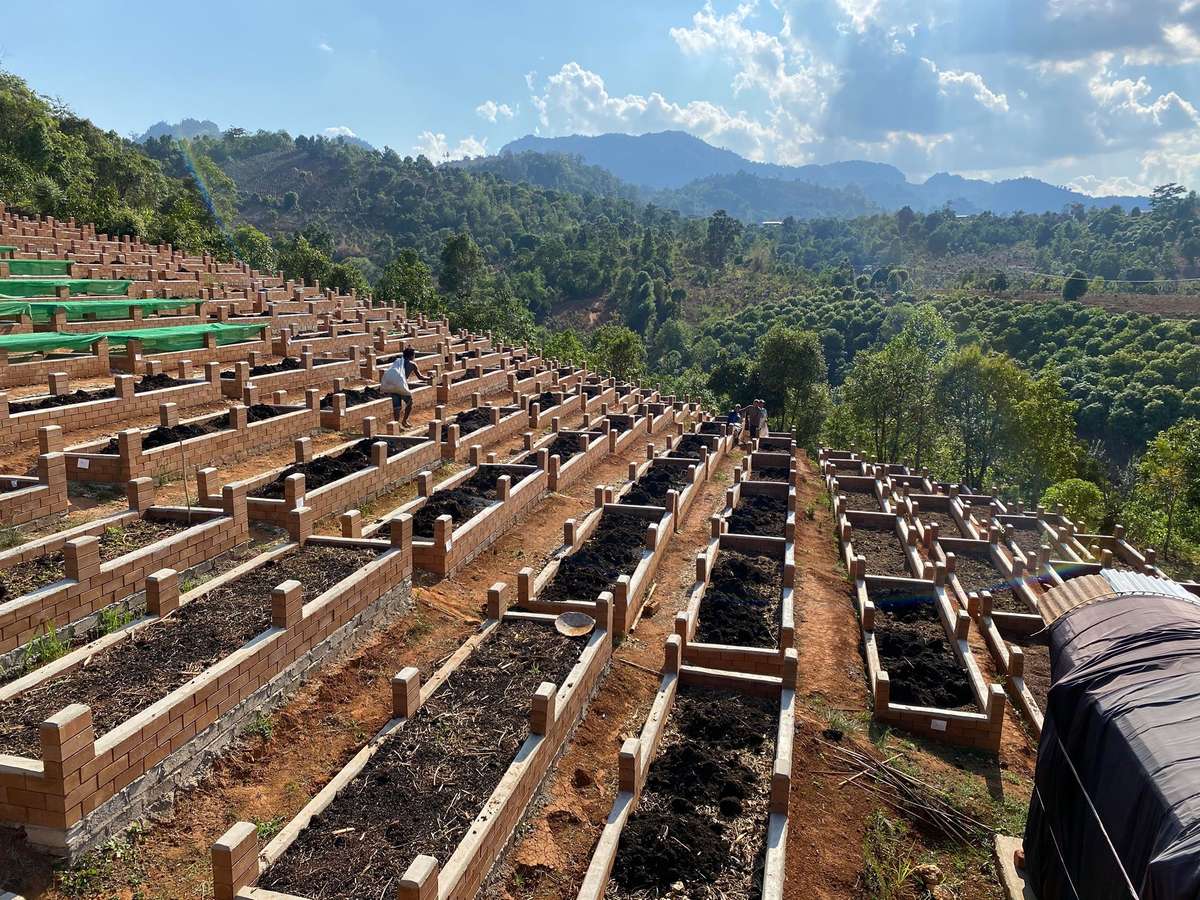This article is from ECHO Asia Note # 42
Multi-Use ‘Bed Racks’

During the coffee harvest season, we find ourselves maxing out every available drying table that we have while processing our coffee. At the Behind the Leaf Coffee Processing Center, we have 122 drying tables, and for 4 months of the year we use every table we have to lay out and dry the fresh cherries. Unfortunately, there are 8 months of the year that we are not using those drying tables, and they take up significant space. Over the years we have experimented with multi-use table alternatives but have largely been unable to take advantage of the land dedicated to drying coffee.
Two years ago, we began experimenting with a ‘Bunk-Bed’ system whereby drying racks can be mounted or removed from an underlying garden raised bed. With this new system we now have significant area at the close of the coffee season that we can dedicate to intensive vegetable production.
At the same time, we realized that filling all of these beds with soil was quickly going to add up and cost us a lot, so we have slowly been filling our raised beds with large amounts of composted coffee cherries and hulls from our center, which we once considered ‘waste’ products of the coffee process.

These ‘bunk-beds’ could easily be built with a number of different materials, but we decided to make our own beds using compressed earth blocks and a press. Drying racks are designed for easy removal and are made of metal frames that sit freely on top of the beds. Drying racks are easily stacked and stored during the year while raised beds are being planted out with vegetables.
We are currently experimenting with mushroom production also, leaving drying racks on beds with shade cloth for a cool mushroom growing environment.
